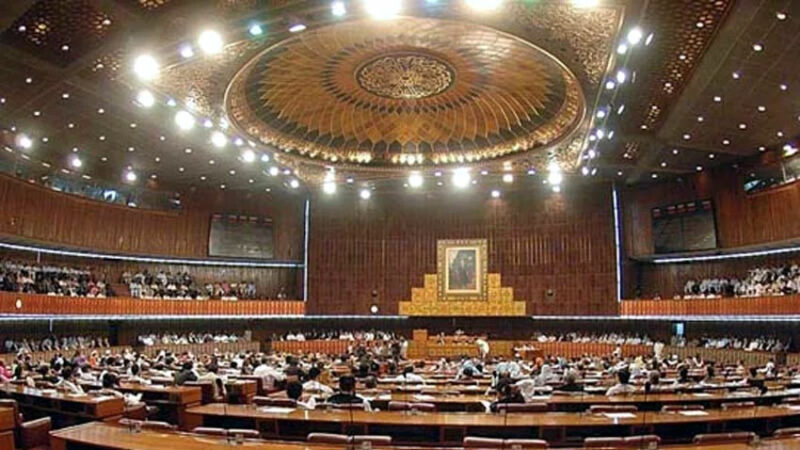ISLAMABAD: Democracy has been left almost as vulnerable in Pakistan as it was when a new government was elected on July 25, 2018.
The Pakistan Institute of Legislative Development and Transparency (PILDAT) has concluded this in its assessment of the country’s 15th National Assembly
The think tank mentioned that the previous National Assembly and elected representatives allowed democracy to be weakened, instead of putting in efforts to strengthen it in their five-year tenure in the parliament.
It stated that the president, upon the advice of the prime minister, dissolved the 15th National Assembly three days before the completion of its five-year term, which did not only push the timing of general election by an additional 30 days but has also raised doubts over the conduct of timely polls to the next National Assembly.
According to the report, the outgoing National Assembly passed a total of 279 pieces of legislation in five years, with the latest flurry of hasty legislation undermining basic tenets of the constitutional scheme of democracy and human rights.
Legislative activity in the 15th National Assembly witnessed an increase of 45% as compared to 192 laws passed during the 14th National Assembly, it added.
The outgoing National Assembly witnessed two governments; the first was led by former prime minister Imran Khan from August 18, 2018, to April 10, 2022; while the second government was formed by the Pakistan Democratic Movement with Shehbaz Sharif as Prime Minister which lasted from April 11, 2022 to August 9, 2023.
It said the PTI government relied heavily on ordinances for the purpose of legislation, adding that out of 75 ordinances laid in the NA in five years, only three were promulgated by the coalition government, while 72 were promulgated by the Pakistan Tehreek-e-Insaf government.
As compared to the term of the 14th National Assembly when only 38 ordinances were promulgated, a 97% increase was witnessed in the number of ordinances passed by the 15th NA, the Pildat said, adding that it has passed the largest number of laws compared to the previous three assemblies starting from 2002.
The Pildat said that in the last three weeks of the 15th NA, 73 bills were passed, out of which 36 (49%) bills were not referred to concerned committees.
It said in its five-year term, the 15th NA was only convened for 452 sittings or average 90 sittings per year, adding that the previous (14th) NA was convened for 495 sittings or on average 99 sittings per year which in itself is not a great performance but it still shows a decrease of 9% in sittings.


Comments are closed.